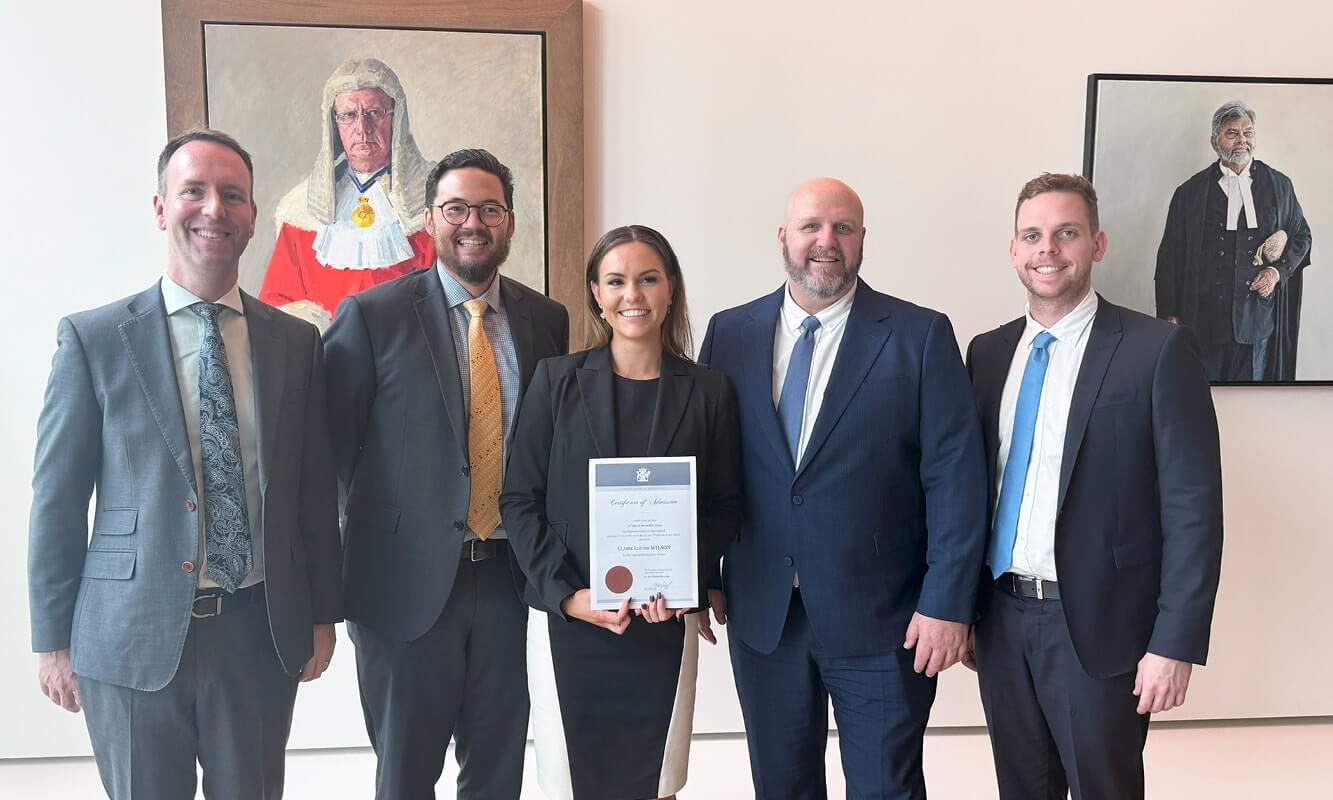In an era where myriad means exist for parties and practitioners to communicate with each other, and with the court, care should be taken by practitioners to comply with their ethical obligations when doing so.
In general, practitioners should communicate with the court on any matter of substance only if the court has required the communication (for example by ordering the delivery of submissions), or if the opponent or opponents consent to the communication.
More recent approaches to case management, particularly managed lists such as the Commercial Lists in the Supreme Court of Queensland, and in the District Court of Queensland, encourage parties to use more informal means, such as emails, to contact the court.
However, even in those circumstances, parties should be careful that any communication with the court avoids argument or submission (unless, of course, requested by the court or the opponent or opponents have consented to that course).
Australian Solicitors’ Conduct Rules 2012
Rule 22.5 of the Australian Solicitors’ Conduct Rules (ACSR) provides:
A solicitor must not, outside an ex parte application or a hearing of which an opponent has had proper notice, communicate in the opponent’s absence with the court concerning any matter of substance in connection with current proceedings unless:
- the court has first communicated with the solicitor in such a way as to require the solicitor to respond to the court; orthe opponent has consented beforehand to the solicitor communicating with the court in a specific manner notified to the opponent by the solicitor.
Similarly, Rule 22.7 of the ACSR provides:
A solicitor must not raise any matter with a court in connection with current proceedings on any occasion to which an opponent has consented under Rule 22.5.2 other than the matters specifically notified by the solicitor to the opponent when seeking the opponent’s consent
Rules to similar effect apply to barristers in Queensland, namely Rules 53 and 55 of the Barristers’ Conduct Rules 2018.
Courts and disciplinary tribunals take practitioners’ communication obligations seriously. In FAL Management Group Pty Ltd v Denham Constructions Pty Ltd,1 McDougall J said at paragraph [5]:
It is not appropriate for a party to litigation, or its legal advisers, to communicate with the Court, except in very limited circumstances, without the prior knowledge and consent of the other party or parties to that litigation. That position is made clear by both the Barristers’ Rules and the Solicitors’ Rules. Its importance has been emphasised in decisions of this Court. Those decisions have been publicised to the profession. It is intolerable that, despite the warnings to which I have referred, the practice still occurs
Similarly, in Legal Services Commissioner v Trost,2 Daubney J (assisted by Scott Anderson and Patrice McKay), in reference to the earlier version of Rule 22.5,3 said at [54]:
Undoubtedly this was derived from the practices before instantaneous electronic communication, when it was understood that:
… there should be no communication or association between the judge and one of the parties (or the legal advisers or witnesses of such a party), otherwise than in the presence of or with the previous knowledge and consent of the other party.
The Tribunal continued in that case, at [55]:
Even in the contemporary age of instantaneous communication, this Tribunal does not accept that the purpose to which the rule is directed can be met by nothing more than “cc-ing” the opponent. If that was so, it would open the gate for all manner of otherwise improper or inappropriate communications to a judge to be justified by the simple expedient of sending a copy to the opponent.
Practice Directions allowing informal communication with the court
Even where the court has adopted particular case management processes, or practice directions allowing, or encouraging, parties to communicate with the court using email or other means, parties should be careful how those opportunities are used.
Except when expressly requested by the court, or consent is given by the opponent or opponents, such communications should not be argumentative or amount to submissions.
Rather, they are usually likely to relate to general housekeeping matters such as requesting a hearing, providing documents or other information requested by the court, or notifying the court of delay in achieving orders.
In each case, again, unless the opponent or opponent consents, or the court has requested it, those communications should avoid explanation or commentary which effectively amounts to a submission or argument.
Unless the court has called for such submission or argument (or the opponents have consented) it would usually be improper to use such case-management opportunities to advance a party’s case in that way.
Supreme Court Practice Direction 1 of 2023, relating to the new Commercial List in the Supreme Court of Queensland, is a case in point. Paragraph 36 of the Practice Direction allows email communication to the Associate to the allocated Judge, and paragraph 37 provides that consent of other lawyers is not required before communication is sent. However, it is important to note that paragraph 36 reads in full:
A party’s lawyers may send an email communication to the Associate to the allocated Judge so long as the lawyers for all other parties are copied and the communication is not expressed in argumentative or tendentious terms.
That is, PD1/23 explicitly contemplates that any such communication with the court, even where consent is not required, should avoid being “expressed in argumentative or tendentious terms”. It is a call for parties, and their lawyers, to inform the court of necessary matters in an objective and neutral way.
Modern practice, and modern courts, provide greater scope than ever before for parties to communicate with each other, and with the court.
However, even where the court expressly allows parties to communicate with the court without notice or consent, such communications should always be made transparently (copying in other parties) and avoiding (except where expressly requested or agreed) argument or submission.
Mark Steele KC is a barrister at Northbank Chambers, Brisbane, and Kirsty Gothard is a Brisbane barrister in private practice.
Footnotes
1 [2015] NSWSC 1035
2 [2019] QCAT 357 (Daubney J, assisted by Scott Anderson and Patrice McKay)
3 with reference to the decision of McInerney J in R v Magistrates Court at Lilydale; ex parte Ciccone [1973] VR 122















Share this article